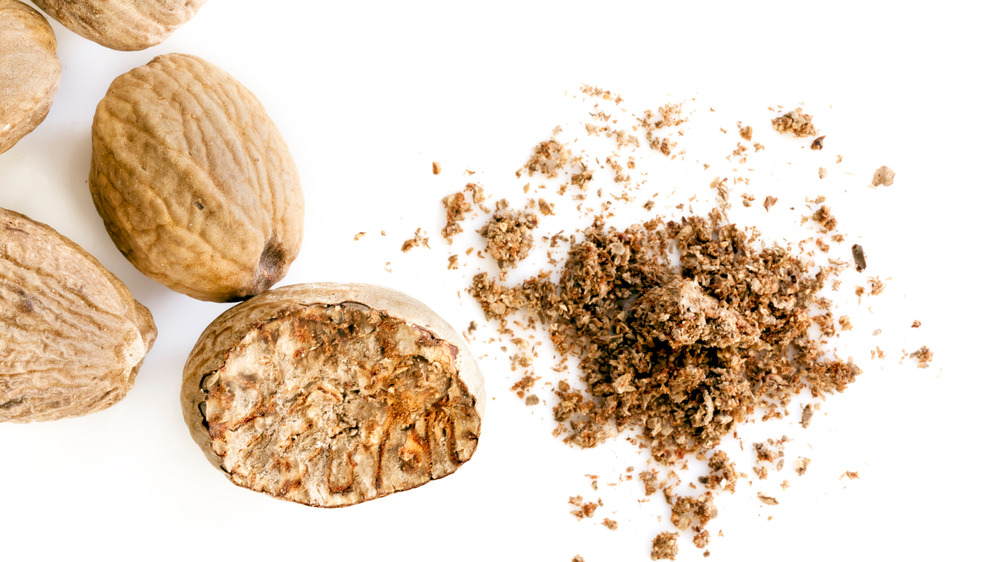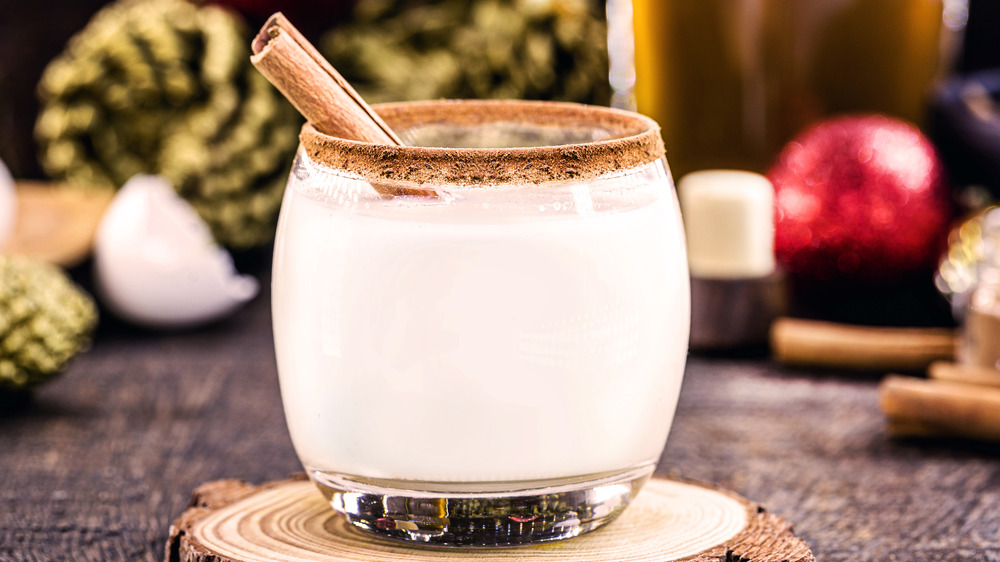Why Eating Too Much Nutmeg Can Make You Hallucinate
Mmm... nutmeg — the nutty, almost cinnamon-tasting spice adds hints of rich, earthy tones and a vague sweetness to your recipes. Be careful, though. With this spice, you can have too much of a good thing.
Use nutmeg too liberally, and your dishes become soapy and bitter, according to Spiceography. Not a good taste for the usual deliciousness of baked apples or pumpkin pie or cozy eggnog. Even worse, though, is that an extra two to three spoonfuls can turn the spice toxic.
When you eat too much of the flavoring, you can get "nutmeg high" or "nutmeg intoxication." According to Health Digest, "This occurs because myristicin, a chemical found in the spice, creates a compound that affects the sympathetic nervous system."
The substance, also present in parsley and dill, is especially high in nutmeg, according to Healthline, and has an impact on the central nervous system by heightening norepinephrine, a neurotransmitter. After ingesting too much nutmeg, someone might experience drowsiness, dizziness, dry mouth, and confusion.
The truth about nutmeg
Eating too much of the spice can even make you hallucinate. But getting to that state takes a huge dose and hours of discomfort, according to ABC News. "About 30 minutes to an hour after taking large doses of nutmeg, people usually have severe gastrointestinal reactions, including nausea, vomiting and diarrhea," it said. "But that's just the beginning. Hours into the high, people can suffer from heart and nerve problems as well."
Nutmeg overdoses, though, rarely happen, according to The New York Times Well blog. While some adolescents or other individuals occasionally experiment with the substance — often ending up in poison control centers, as reported by Clinical Toxicology – most overdose cases happen accidentally — for instance when a child found an open jar that a parent left on the counter.
Many foods can do strange things to your body, though: an excess of sugar-free gum chewing could cause bloating, garlic might change your smell, and a fan of carrots could end up orange, according to a Health Digest article. The secret to food success just might mean embracing the philosophy that in so many cases, a little goes a long way. After all, nutmeg also has antioxidants that can improve memory, reduce stress and provide anti-inflammatory benefits ... so don't take it out of your eggnog just yet.

